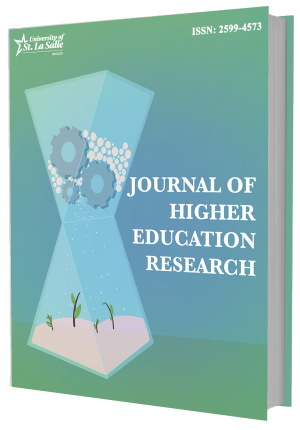The Quest For A New Heart: Exploring the Lived Experience of Patients with Organ Transplantation
https://doi.org/10.70228/YJHER2024005
Cite this article Read this article
ABSTRACT
Heart transplantation is a well-established treatment for individuals with end-stage heart failure, aiming to prolong survival and improve health-related quality of life (HR-QoL). Using snowball sampling and an in-depth interview, this qualitative phenomenological approach sought to explore the lived experience of 15 patients who had been purposefully chosen following heart transplants from a general hospital in China. Data analysis of patients who received a new heart within three years revealed four main themes: (1) "Paradoxical emotions," (2) "Need for support," (3) "Different stressors in different stages," and (4) "Addressing individual needs." The following sub-themes under "Paradoxical emotions" have been identified: (1a) Excited and depressed; (1b) Grateful and guilty; (1c) Hypervigilance and overindulgence; and (1d) Disclosure and confidentiality. Under the heading "Need for support," the following sub-themes have been found: (2a) Financial support, (2b) Social support, (2c) Family and friends' support, and (2d) Medical caregiver support. The subject "Different stressors in different stages" was used to extract five stressors: (3a) Worrying about a foreign organ, (3b) Marital relations challenges, (3c) Bearing children, (3d) Job opportunity, and (3e) Medical services. Theme 4 is the yearning for diversity with four sub-themes: (4a) Sodalities of the ward mates, (4b) Life coaching and activities guidance, and (4c) Health education activities. A comprehensive cooperative support model was suggested to guide nurses caring for patients undergoing heart transplants.
Keywords: heart transplant, heart failure, lived experience, physiology, psychology

Volume 11 Issue 1, 2023 EDITION
Published 2023
Editor's Note
Dear Readers, I am delighted to share with you the Volume 11, Issue 1 (2023) of the Journal of Higher Education Research. This issue showcases a compelling collection of studies that address critical topics in nursing education and healthcare, each offering meaningful insights that contribute to advancing both practice and policy. The integration of clinical nursing specialties into curricula is explored in a study by Tan and Chua, emphasizing the importance of aligning education with the demands of modern healthcare. Similarly, Jin and Young study the factors influencing risk cognition among nursing students, highlighting the need for targeted interventions to enhance clinical performance and understanding nursing risk management. The challenges brought by the COVID-19 pandemic are reflected in the work of Qiao and Diva, who investigate the knowledge, beliefs, and practices surrounding hand hygiene among nursing students. Their findings emphasize the importance of reinforcing hygiene practices to maintain healthcare standards during global crises. Meanwhile, the works of Ying and Chua on inter-arm blood pressure differences provides critical insights into prevalence of hypertension and related factors in different groups. In the realm of psychosocial health, Liu and Espinosa examine dyadic coping, perceived stress, and marital adjustment among female cancer patients and their spouses. Their findings shed light on the interplay between personal health and relational dynamics, offering valuable perspectives for psychosocial interventions. Equally compelling is the work of Song and Trajera, which captures the lived experiences of patients undergoing organ transplantation, providing a profound understanding of their challenges and the support they require. Other studies in this issue focus on empowering patients through self-management and improved care pathways. Luo and Trajera document the experiences of elderly patients with colorectal cancer, emphasizing the significance of autonomy in enhancing quality of life. Meng and Trajera, on the other hand, explore the care needs of glioma patients during hospitalization, offering insights into improving symptom management and survivorship care. Lastly, Liu and Cadena investigate discharge readiness and the quality of discharge teaching among diabetic patients, highlighting the level of correlation in terms of discharge readiness and influencing factors for discharge management plan. This collection of studies reflects the diverse and evolving landscape of nursing education and healthcare research. We extend our heartfelt thanks to the authors, reviewers, and the editorial team for their dedication and contributions. It is our hope that these studies inspire new ideas and inform practices that will shape the future of higher education and healthcare. Enjoy your learning through the current issue. Sincerely, JOVAL N. MARTINEZ Editor-in-Chief


